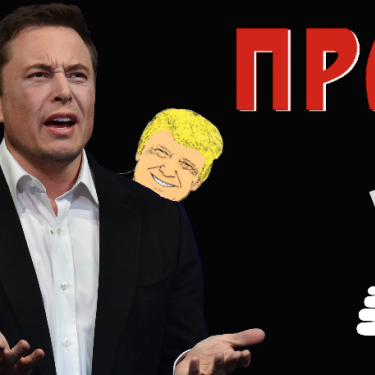Elon Musk, a new threat to the American press?

Reporters Without Borders (RSF) is disturbed by the declared desire of US billionaire businessman Elon Musk, the founder of SpaceX , director of Tesla Motors and inventor of the Hyperloop, to set up an online truth-rating system for media stories and thereby undermine trust in the media, which has already been weakened since Donald Trump became US president.
South African-born Musk, a visionary engineer who receives a lot of media attention, has been attacking “journos” on Twitter in recent weeks. So much so that his angry tweets and proposal to rate their credibility have put him squarely in the camp of high profile Americans displaying a determined hostility towards the media.
Since the start of the year Trump has been taking delight in awarding “fake news” prizes to the media. Musk, on the other hand, says he is “going to create a site where the public can rate the core truth of any article and track the credibility score over time of each journalist, editor and publication.” He proposes calling it “Pravda,” the Russian word for “truth” and the name of a Soviet-era government newspaper that was not exactly a model of journalistic independence and credibility.
“A simple popular vote cannot determine the truth of a statement,” said Elodie Vialle, the head of RSF’s Journalism and Technology Desk. “Journalism is based on rigorous methods for verifying facts. Trying to use the ‘wisdom of the crowd’ to objectively rate the accuracy of reporting, without regard to journalistic standards, is illusory and dangerous, like all attempts to undermine the credibility of the media.”
The American press have voiced concern about Musk’s proposal. On Twitter, The Verge journalist Andrew Hawkins wrote: “Musk continues his slow transformation into a media-baiting Trump figure screaming irrationally about fake news.” In a vitriolic editorial entitled “Elon Musk, the Donald of Silicon Valley,” the New York Times compared Tesla’s CEO to the 45th president, writing: “He is prone to unhinged Twitter eruptions. He can’t handle criticism. He scolds the news media for its purported dishonesty.”
The mutual disenchantment expressed by Musk and the media has recently intensified. In its last annual report in December 2017, Tesla boasted of not needing to resort to traditional advertising because “media coverage and word of mouth” sufficed to sell its electric cars. But a series of technical flaws and, above all, a Tesla Model S driver’s death in a crash while on autopilot on March 23, changed the tone and nature of the reporting, as well as the attitude of Musk, who now blames “negative coverage” for the fall in the price of Tesla shares.
It was after yet another investigation led by media outlet Reveal last April - accused by Musk of creating “a calculated disinformation campaign”- and another critical article on the specialist news website Electrek on May 23 that Musk began his recent bout of media-bashing and announced his plan for a credibility-rating site. But the idea of a counter-offensive against the press seems to have pre-dated that. “Pravda Corp” was registered as a company last October. A journalist working for The Economist has confirmed that Musk is the owner. The entrepreneur who dreams of saving humanity and colonizing Mars seems to have a very particular take on press freedom.



